I used T-Mobile's 5G network, and it's a whole lot like using its 4G network
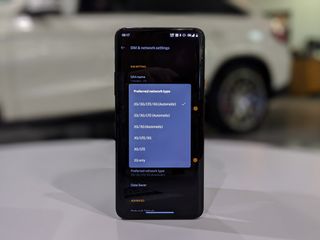
The early days of 5G networks are confusing, with the biggest annoyance being the explanation of what kind of 5G network a given carrier is using. There's mmWave, which Verizon is incredibly bullish on, and then there's Sub-6, which has been deployed by far more carriers around the world and is easier to launch quickly and comprehensively. (And then, there are differences in implementation with mid-band and low-band Sub-6 networks.) T-Mobile launched its Sub-6 5G network "nationwide" this week on its low-band spectrum, and I've been using it for a week on a OnePlus 7T Pro.
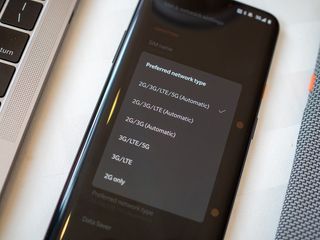
The best part of Sub-6 5G is that carriers are able to (relatively) simply upgrade existing LTE towers, and use existing low-band spectrum. Performing to towers you already have, rather than deploying thousands of small cells necessary for mmWave, dramatically increases the rate you can launch the network. And running on very low-band 600MHz spectrum means you don't need as many towers upgraded to give areas substantial coverage.
That's how T-Mobile was able to flip the switch and announce it has "nationwide" 5G coverage so quickly. Its 5G network immediately covers 200 million people, which isn't a complete match of its LTE footprint but is substantial — and will be available in the largest and densest cities. This low-band spectrum is also generally beneficial for having a signal inside buildings, which has historically been an issue for T-Mobile.
It's all, theoretically, a big win for T-Mobile. In actuality, the real-world benefits of using this OnePlus 7T Pro on a 5G network are smaller than you'd think given the big promises around 5G as a whole.
T-Mobile's 5G coverage is great, and the few times you have to drop to 4G it does so seamlessly.
To start on the positives, T-Mobile's 5G network is great in terms of coverage. I was on 5G most of the time, which is miles ahead from Verizon's tiny 5G coverage map. And T-Mobile's 5G also doesn't have the massive inconsistency and trade-offs of Verizon's: the phone holds onto a 5G connection consistently as you move around (either walking or in a car), seamlessly transitions from 5G to 4G, and doesn't seem to drain battery appreciably faster than 4G phones. We've come to expect with 3G and 4G that new networks have to come with slow rollouts, but that isn't the case here — T-Mobile's starting strong in terms of 5G availability.
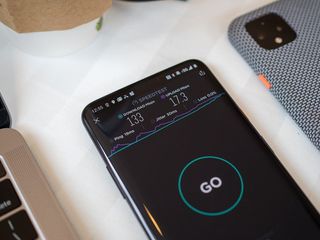
On the other hand, speeds you get on T-Mobile 5G are far lower than the mind-blowing numbers we see from Verizon. For the most part, I was getting downloads in the range of 50-100 mbps, with uploads in the 5-50 mbps range. On rare occasion my download speeds would go as high as 250 mbps, but those instances were few and far between. Those 200+ mbps tests aside, download and upload speeds were typically about 25% higher than T-Mobile 4G speeds. That's nothing to sneeze at, but it's hard to say you can actually notice the difference between 75 and 60 mbps with anything but a synthetic speed test — and those speeds are what we already regularly see from well-developed 4G networks around the world.
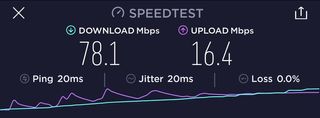
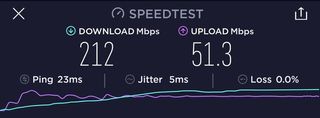
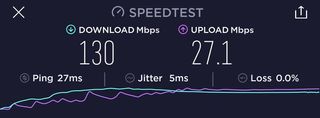
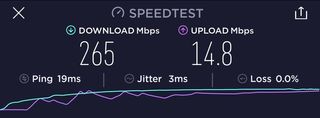
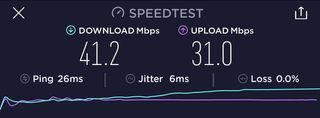
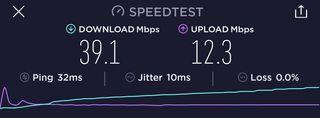
Source: Android Central
Be an expert in 5 minutes
Get the latest news from Android Central, your trusted companion in the world of Android
And then you hit instances where the 4G network is actually faster than 5G. T-Mobile didn't need to upgrade all of its towers to reach this 200 million population coverage, so there are times when you're connected to 5G that's weaker than a T-Mobile 4G phone right next to it — presumably because it's holding onto a less-than-optimal tower just to stay on 5G. I had many instances where my Pixel 4 XL matched or beat my OnePlus 7T Pro's speeds.
You can expect about a 25% speed bump over T-Mo 4G, though it isn't as consistent as I'd like.
And that's only an in-network comparison. Verizon's 4G network regularly beat T-Mobile's 5G network in my side-by-side testing, with consistent 50-100 mbps speeds where T-Mobile 5G was around 50 (or in some cases indoors, more like 15). The reality is that T-Mobile's 5G network suffers from the same quirks as its 4G one: speeds can be fantastic, but they're often less consistent than Verizon and AT&T, and there are many instances inside buildings and in rural areas where the service is just downright disappointing. These issues can be fixed, and T-Mobile would love you to believe that its acquisition of Sprint will accelerate those changes, but right now this is 5G done through the same exact playbook as what we've come to expect from T-Mobile's 4G; for better and worse.
RLRT @theMrMobile “I’ll be right back, I’m gonna step outside to use 5G."RLRT @theMrMobile “I’ll be right back, I’m gonna step outside to use 5G."— Andrew Martonik (@andrewmartonik) December 5, 2019December 5, 2019
This isn't a game-changing experience yet, but it's a network you can experience just about anywhere.
The biggest win for T-Mobile is that there's really no downside to this 5G network. Sure it's often the same speed as, or only marginally faster than, its 4G network. But in some cases it's considerably faster, and you never have to hunt around to find it. Your phone's going to be on 5G most of the time; and when it isn't, you're falling back to a solid 4G network. So even though it isn't a complete game-changing experience, it's a noticeable improvement that you get to experience in far more places than the other U.S. 5G networks right now. For many people, that's a fine trade-off when they may be months or years away from having access to another carrier's 5G network where they live.
T-Mobile isn't charging more for 5G plans, so the only part of this whole situation that's a truly tough sell is its device selection. The OnePlus 7T Pro I'm using is a whopping $900, $200 more than the standard OnePlus 7 Pro and $300 more than the OnePlus 7T; and your only other choice is the Galaxy Note 10+ 5G for $1300. The OnePlus 7T Pro McLaren Edition has been a joy to use, but so is the regular OnePlus 7 Pro — and I don't think I can really value access to this 5G network at $200.
T-Mobile's 5G pitch will be dramatically easier when it has a complete portfolio of 5G phones, and the price premium for getting one isn't so dramatic. Because as far as the network goes, it's off to a great start.
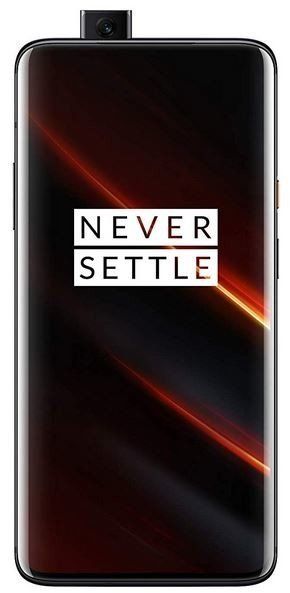
A great phone, but one that has questionable value at this price.
The OnePlus 7T Pro (or 7 Pro) is a great phone. OnePlus software continues to be excellent, and the hardware and specs you get are top-notch. But adding 5G sure doesn't feel like it's worth this extra money over the 4G version.
Andrew was an Executive Editor, U.S. at Android Central between 2012 and 2020.

